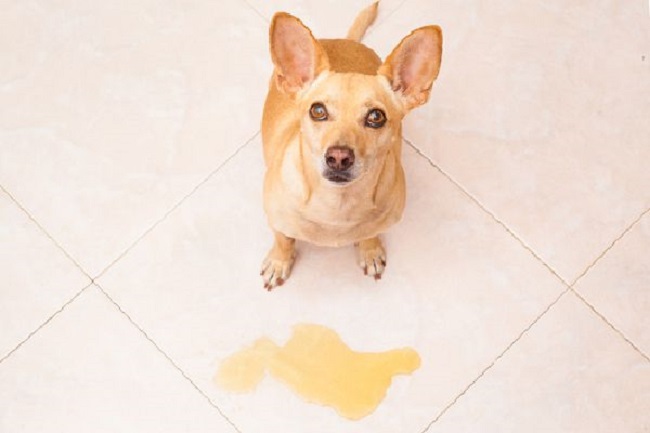As a Dog owner, you’re likely familiar with the day-to-day habits of your furry friend, including their bathroom habits. So, when you notice a particularly foul Smell from your Dog’s urine, it’s natural to be concerned.
Understanding the reasons behind Bad-Smelling Dog urine can help you ensure your pet’s health and happiness. This article dives deep into the causes of Bad-Smelling Dog Pee, potential solutions, and when to consult with a veterinarian.

Diet and Hydration: The Primary Influence
The first factor that might be affecting the Smell of your Dog’s urine is their diet. Certain foods, especially those high in protein, can cause your Dog’s urine to Smell stronger than usual.
Read Also:
Similarly, a lack of hydration can lead to concentrated, and therefore, Smellier urine. Ensuring your Dog has a balanced diet and access to fresh water throughout the day can make a significant difference.
Health Conditions: When Bad-Smelling Urine is a Symptom
Sometimes, foul-Smelling urine can be an indication of underlying health problems. Urinary tract infections (UTIs), kidney disease, diabetes, and bladder stones are among conditions that may cause a Dog’s urine to Smell Bad.
If you notice other symptoms like frequent urination, discomfort while urinating, or changes in urine color along with a foul Smell, it’s important to consult your veterinarian promptly.
Age and Hormonal Changes
Age and hormonal changes can also contribute to changes in a Dog’s urine Smell. As Dogs age, their body systems can become less efficient, potentially leading to stronger Smelling urine. Hormonal changes, particularly in unspayed female Dogs, may also alter the odor of urine.
Addressing the Issue: Solutions and Treatments
If diet and hydration are to blame for your Dog’s foul-Smelling Pee, altering their food or increasing their water intake could resolve the issue. In case of health-related causes, a vet’s intervention will be necessary.
Antibiotics can clear up UTIs, while specific diets and medications can help manage conditions like kidney disease or diabetes. In the case of hormonal changes, spaying or neutering can often help.
Prevention: Keeping Your Dog’s Urinary Health in Check
Maintaining your Dog’s urinary health can prevent issues with foul-Smelling urine. Regular vet check-ups, a healthy diet, and ensuring your Dog drinks enough water are key. Paying attention to any changes in your Dog’s bathroom habits can also help catch potential problems early.
Dog Breeds and Urine Odor: Is There a Link?
While any Dog can experience foul-Smelling urine, it’s worth noting that certain breeds may be more prone to urinary health issues than others.
Breeds such as Dalmatians, BullDogs, and Yorkshire Terriers have a higher predisposition for developing urinary stones, which can contribute to changes in urine odor.
On the other hand, breeds such as the Bichon Frise, Shih Tzu, and Miniature Schnauzer are more prone to bladder infections, which can also result in Bad-Smelling urine.
Therefore, if you own a breed that is at a higher risk of urinary health issues, it’s even more critical to stay vigilant about any changes in the Smell of your Dog’s urine. Regular vet check-ups and timely treatment can help manage these breed-specific risks effectively.
Remember, while it’s essential to be aware of the common issues affecting your Dog’s breed, any Dog can experience changes in urine odor due to various factors. Thus, maintaining a proactive approach to your pet’s urinary health is crucial, regardless of their breed.
Read Also:
Conclusion
Dealing with a Dog’s Bad-Smelling urine can be a concern for many pet owners, but understanding its causes can demystify this issue. While diet and hydration adjustments can often help, sometimes Bad-Smelling urine can signal more serious health issues.
Recognizing the signs and consulting with a vet when necessary can ensure that your canine companion stays healthy and happy.
























